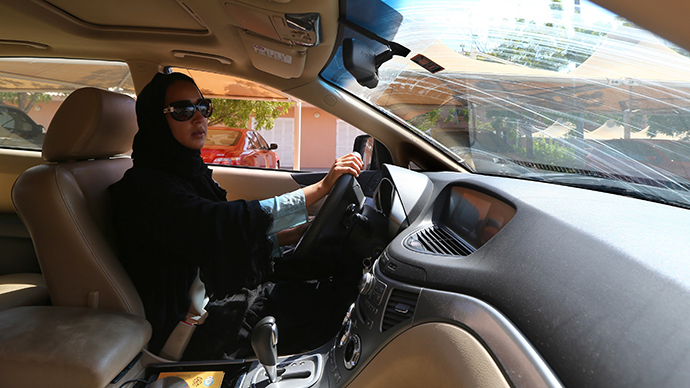Anti-driving-ban activists in Saudi Arabia 'to face terrorism tribunal'

Two women’s rights campaigners detained in Saudi Arabia will face a tribunal on charges of “terrorism”, following their campaigning activities, which led to one being arrested for trying to drive over the border from the UAE.
According to the activists who spoke to AFP, the ruling was issued in the city of Al-Ahsa, in the Eastern Province.
The initial attempt to cross the border, carried out by Loujain Hathloul, 25, was designed as a statement of sorts, while the other woman, a journalist from the United Arab Emirates, appeared at the scene later to show support, before also being arrested. They have now been in detention for nearly a month.
Saudi Arabia is the only country that doesn’t allow women to drive. Many take issue with this custom, and foreign observers have been very vocal on the strictness with which Saudi Arabia deals with any form of dissent in these cases. This includes the NGO Reporters Without Borders, who included the kingdom in its list of 19 countries where authorities are “enemies of the internet.”(Both women were very active online). Similarly, Human Rights Watch said recently that “Saudi authorities are ramping up their crackdown on people who peacefully criticize the government on the internet.”

Those close to Loujain al-Hathloul, 25, and Maysa al-Amoudi, 33, said the women are not being charged for defying the driving ban but for opinions they voiced online. They declined to elaborate on the specific charges due to the sensitivity of the case. All spoke anonymously for fear of government reprisal.
As a result Saudi’s reputation among human rights activists, the two women had no trouble attracting attention to their driving ban, and were quite active on Youtube and Twitter.
While it remains unclear what the details of the allegations are, activists familiar with the case have said that they most likely relate to the pair’s internet activity: Hathloul had 288,000 followers on Twitter, where she often joked about the Saudi custom. Maysaa al-Amoudi, 33, the journalist, had a similarly high media profile, with 131,000 followers, along with a Youtube channel dedicated to discussing the ban.
Speaking to the AP, activists close to the women said their defense lawyers have immediately appealed the court’s decision. The terrorism court, it is widely believed, is used not only for those convicted of terrorism in the traditional sense, but also to try and convict political dissidents and anyone who questions the official line.
The debate has been heating up in recent years, with plenty of online comedy and activism on the issue. In October, a great number of women took to the internet to post photos of themselves driving, while one Saudi musician made a Bob Marley cover recently, entitled ‘No Woman No Drive’.
The driving photos were followed by the government announcing that it will not tolerate anyone trying to upset “the social cohesion” of Saudi society, and will “strictly implement” measures to keep such people in check.












